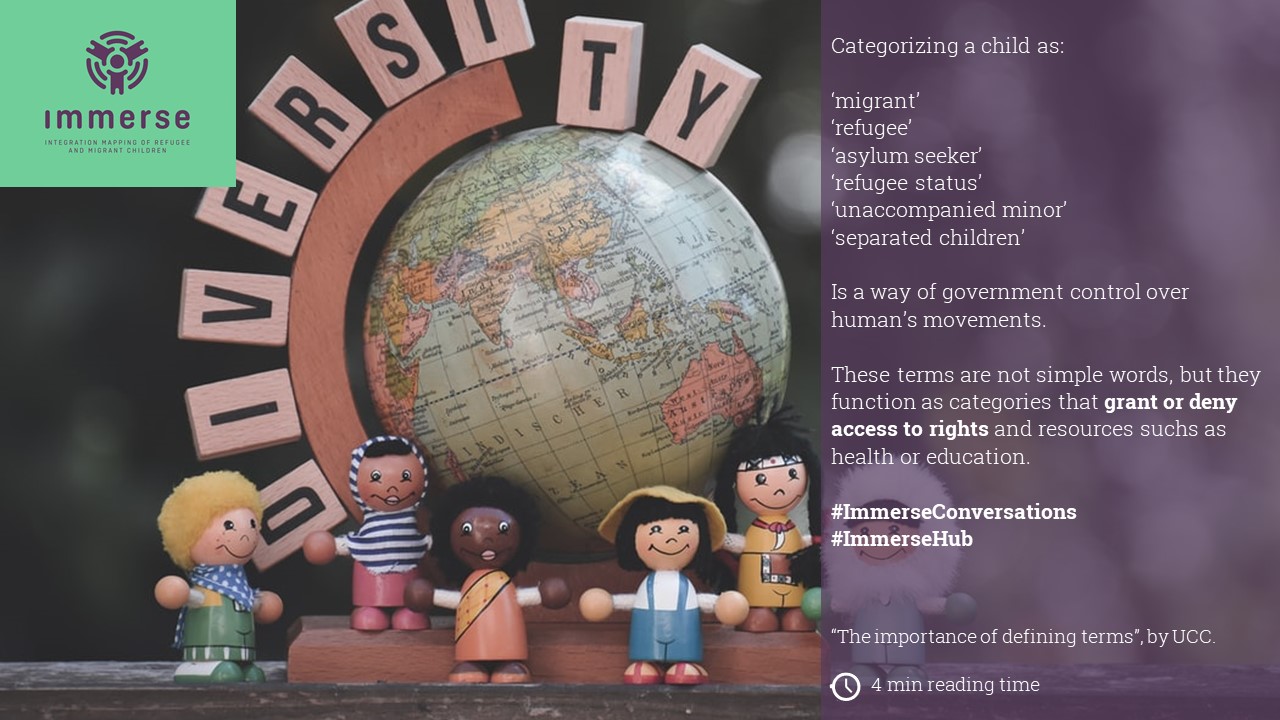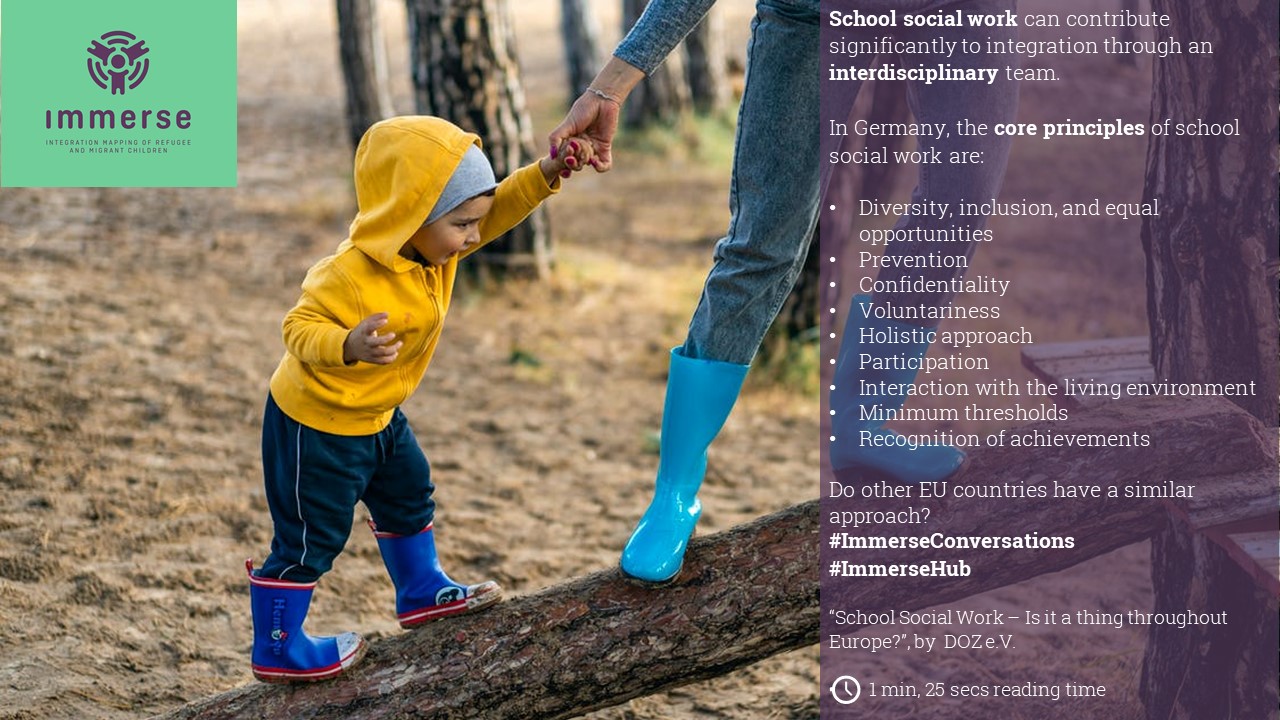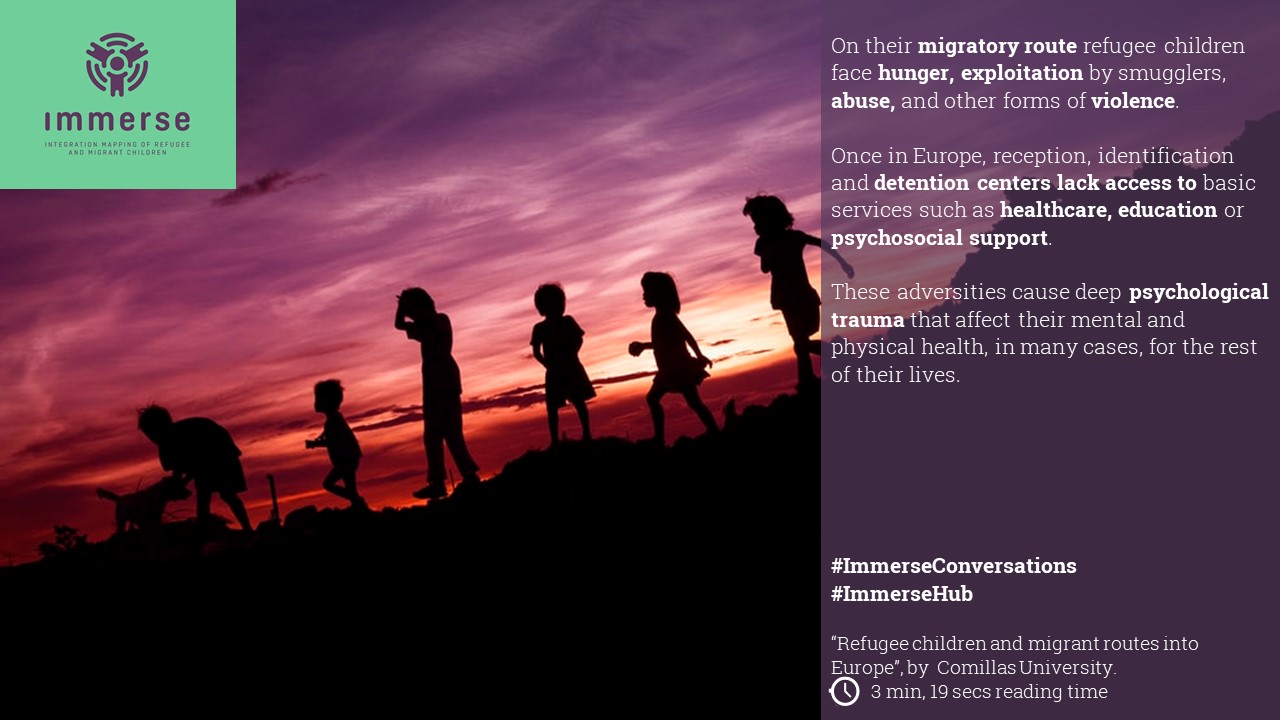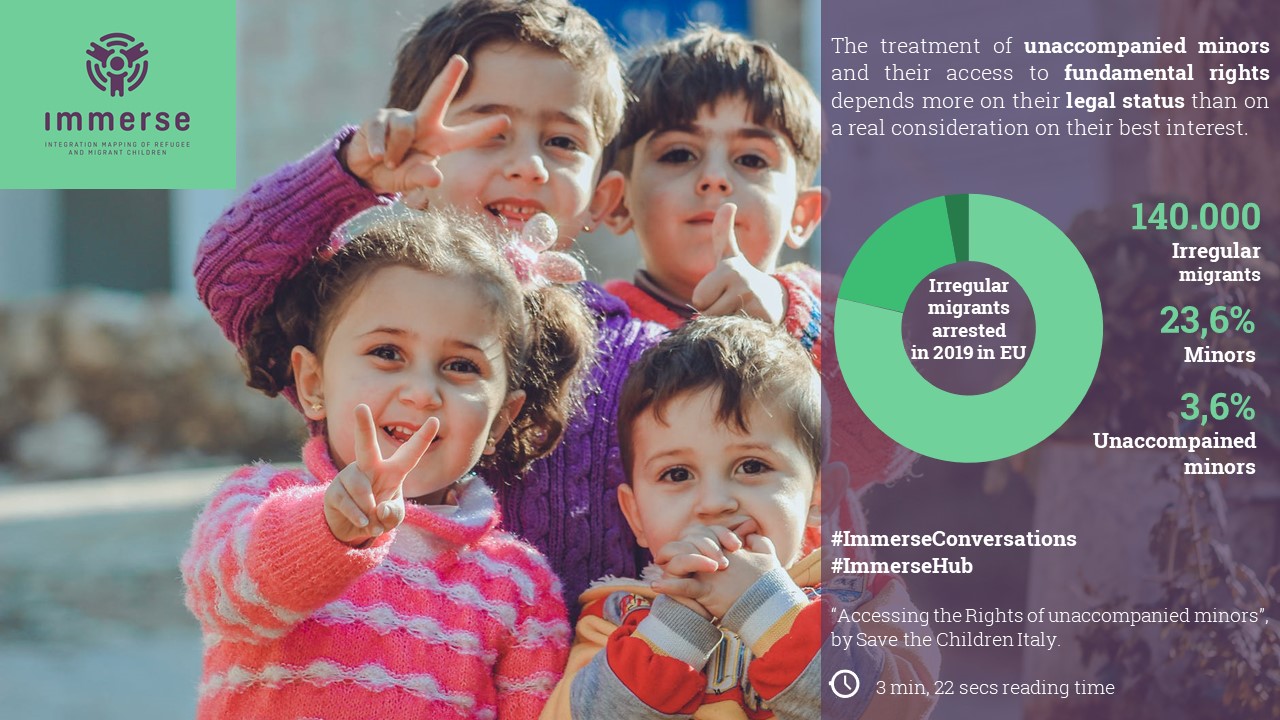|
|
|
|
|
|
|
The IMMERSE hub
A forum for discussion on the integration of
refugee and migrant children in Europe
|
|
|
|
|
|
Your contribution is essential! Comment on the hub's topics and discussions:
|
|
|
|
|
|
Join the IMMERSE hub and
take part in the IMMERSE Conversations
|
|
|
The IMMERSE hub is an online platform created within the project website. The platform has been designed with the aim of creating a discussion forum around the topic of socio-educational integration of refugee and migrant children in Europe. The target audiences of the platform are academic researchers, policy makers, NGOs and organisations involved in working with migrants and refugees, social workers in direct contact with children in migrant backgrounds, schools, and anyone involved in any way with the integration of this sector of the population in Europe and beyond.
|
In order to access the short articles on the hub, comment on the discussion topics and post your own entries, you must be registered. Registration is easy, all you need is an email address and a password. Follow these steps:
|
- Click the link Immerse Hub
- Click on "Check in" and fill in the required information
- Once inside the Hub, join the Group "Immerse Conversations"
- In the Blog section you will find articles. Read and comment! Your opinion is valuable.
|
The aim is to grow the network around the H2020 IMMERSE project in order to discuss and contrast points of view and experiences drawing the best conclusions and advice regarding the integration of refugee and migrant children. The open topics for discussion at the moment are related to data and facts, rights and education and social inclusion. Some of them are presented below.
|
Join the hub, your contributions are valuable and the debate is necessary to contrast views and find best practices for implementation in Europe. We have a common goal: the integration of all children into the societies in which we live, with equal rights and offering them all equal opportunities for their present and their future.
|
|
|
|
|
|
|
|
Data & Facts: The importance of defining terms
|
|
|
|
We live in a period of unprecedented global migration. Ironically, however, while national borders are increasingly permeable to the worldwide circulation of capital and goods, people are a different story. Governments are concerned, in some cases obsessed, with the movement of people in and out and, rather than the deregulation we see in the realms of trade and finance, we see attempts to exert ever tighter control over borders in various ways. We also see those attempts at control challenged at just about every turn by people, many of whom are children, determined, and in some cases desperate, to move.
|
|
Definitions and categories are one of the ways this control is manifested. Keep reading here.
|
|

|
|
|
|
|
School Social Work – Is it a thing throughout Europe?
|
|
|
|
School social work is a service offered by youth welfare services in which socio-educational specialists are continuously active at the on-site school and work together with teachers on a bindingly agreed and equal basis in order to support young people in their individual, social, school and professional development, to contribute to avoiding and reducing educational disadvantages, to advise and support parents and teachers in education and the educational protection of children and young people and to contribute to a pupil-friendly environment. Keep reading here.
|
|
|
|

|
|
|
Data & Facts: Refugee children and
migrant routes into Europe
|
|
|
|
When becoming familiar with refugee children affairs there is a key question that needs to be clarified, namely: are refugee and migrant children the same? The answer to this question is simple: no, and both terms cannot be used interchangeably. Of course, there are similarities between these two groups of children, however, the characteristics that differentiate them are crucial to bear in mind, as they entail different needs that should be known in order to acknowledge their rights and design ad hoc integration policies. Keep reading here.
|
|
|
|

|
|
|
Accessing the Rights of unaccompanied minors
|
|
|
|
Children in migration are more vulnerable than adults, particularly when they are unaccompanied. Their vulnerability makes them more exposed to violence, exploitation, and trafficking in human beings - as well as physical, psychological, and sexual abuse.
|
|
In the EU Charter of Fundamental Rights, an unaccompanied minor is defined as “a third-country national or stateless person below the age of 18 years, who arrives on the territory of the (Member) States unaccompanied by the adult responsible for them by law or by the practice of the (Member) State concerned, and for as long as they are not effectively taken into the care of such a person”. This definition includes those minors remaining alone upon their... Keep reading here.
|
|

|
|
|
|
|
IMMERSE consortium is formed by eleven partners from six countries:
|
- Comillas Pontifical University (Spain)
- Zabala Innovation Consulting (Spain)
- INFODEF Institute for the Promotion of Development and Training (Spain)
- Ministry of Inclusion, Social Security and Migrations (Spain)
- Informática el Corte Inglés (Spain)
- Save the Children Italy (Italy)
- DOZ e.V. International (Germany)
- Active Citizen Europe (Belgium)
- Panteion University of Social and Political Studies (Greece)
- Regional Directorate of Primary and Secondary Education of Crete (Greece)
|
|
|
    
|
|
|
|
|
This project has received funding from the European Union’s Horizon 2020 research and innovation programme under grant agreement 745625. The dissemination of results herein reflects only the author’s view and the European Commission is not responsible for any use that may be made of the information it contains.
|
|
|
|
|
|
|
|
|
|